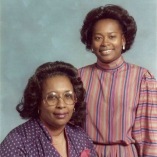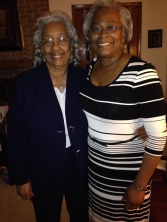All Hallow’s Eve has past. The ghoulies and ghosties, skeletons and zombies all have been put in storage and out of sight for another year.
The next day, Saturday, November 1, All Saints’ Day in the Christian calendar, death had a new face. Brittany Maynard. A widely posted family snapshot shows her in a backyard patio setting, relaxing on a chaise lounge; her attractive, brown-haired, luminous-eyed, broad-smiled countenance peering up into the photographer’s lens, the proverbial picture of health and hope.
On New Year’s Day of this year, Brittany was diagnosed with inoperable and incurable brain cancer; later being given six months to live. She and her husband, Dan Diaz, moved from their California home to Oregon, which allows terminally ill persons to choose to end their lives with physician-prescribed lethal medication. Over weeks and months, Brittany became an advocate for the expansion of aid-in-dying state legislation beyond, in addition to Oregon, Vermont and Washington.
Brittany’s death, perhaps more her choosing to die, not surprisingly, has evoked a range of responses, publicly expressed and privately stated.
Some have spoken and written of Brittany’s decision as one of courage in the offing of inevitable deterioration beyond, below any desired standard of quality of life. My friend, the Reverend Susan Mann Flanders, on Sunday, October 26, at St. Mark’s Church, preached a sermon, entitled, Love of God, Love of Neighbor, that addressed in poignant and powerful terms “suicide and assisted suicide in the decline of old age” (see www.stmarks.net > Worship > Sermons). Though Brittany was 29, given her medical diagnosis, the difference between her circumstance and that of the profoundly debilitated aged, I think, is a number.
Others, largely, but not only the staunchly religious, have questioned, some more vigorously than others, what they deem a usurpation of the purview of the deity or perhaps fate to determine the end of life. In interpreting, rightly, I think, the counsel of Psalm 39.4 (Lord, let me know my end, and what is the measure of my days; let me know how fleeting my life is) not as a desire to know the timing of death, but rather a plea for the grace to live wisely in the face of the reality of its inevitability, some would adjudge Brittany’s actions as rash, if not also faithless.
Still others, and the large majority of commentators, whether or not claiming to understand Brittany’s choices, and, even in that, confessing their conundrum if ever faced with a similar situation, express a palpable depth of lament.
As I think of Brittany and Dan, I honor them, each and both, for what I perceive as their belief in a life of love well lived, which, in the lengthening shadow of her inescapable increasing suffering and, therefore, their shared loss, led them to choose her dying day.
I also think of my mother, Lolita, nearly seventy years Brittany’s senior, who, long having journeyed into the insentient wilderness that is Alzheimer’s disease, for the past ten years has been confined to bed. My mother’s body with heartbeat strong is still with me, but her mind and her conscious awareness of her surroundings and her maternal acknowledgement of me are far away and long past. With her continued breath of life, I have come to know loss like death, provoking in me a so-far interminable, heretofore unimaginable sorrow. At times, with humor macabre – for a smile, however wan and grim, interrupts, if for an instant, my soul’s anguished weeping – I consider that my mother is well on her way to proving that she is God, for she is eternal and incomprehensible.
A week ago, a friend referred me to the book Being Mortal: Medicine and What Matters in the End. The author, Atul Gowande, M.D., M.P.H., writes eloquently of what some, I imagine, would call advances of medical science that prolong life, even in our waning days, without “a sliver’s chance of benefit.” Recently having enrolled my mother in hospice care, I find comfort in Dr. Gowande’s counsel. I also confess, no doubt somewhat selfishly that I might engage fully my grieving, wanting to know, quite apart from the psalmist’s intent, the measure of my mother’s days.
Until that moment comes, I wait. And in this moment and forward, again, I honor Brittany and Dan.


